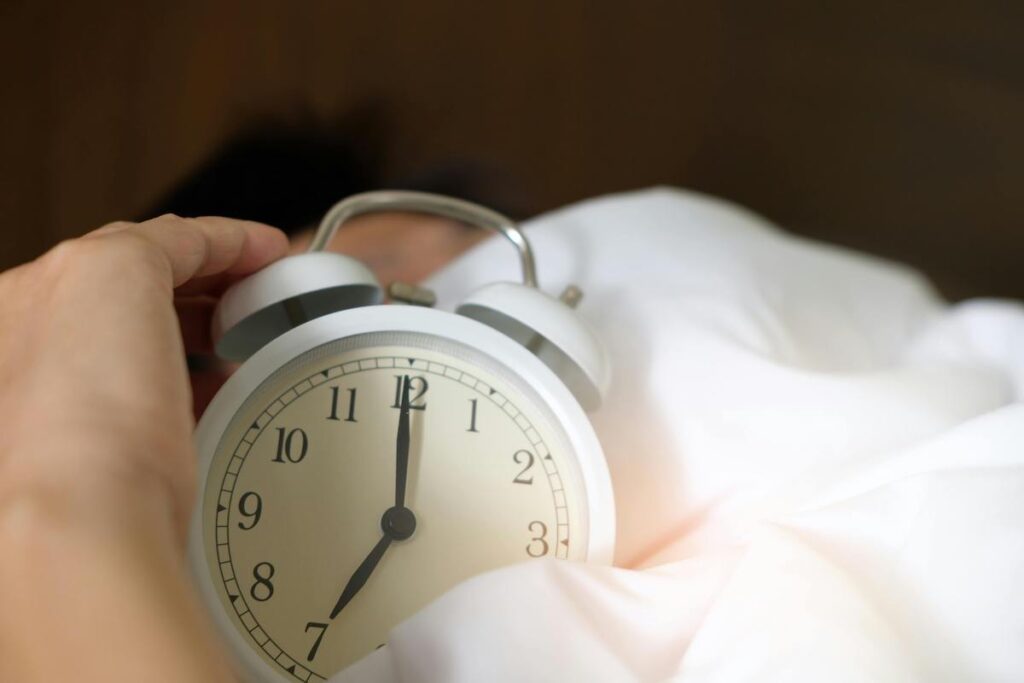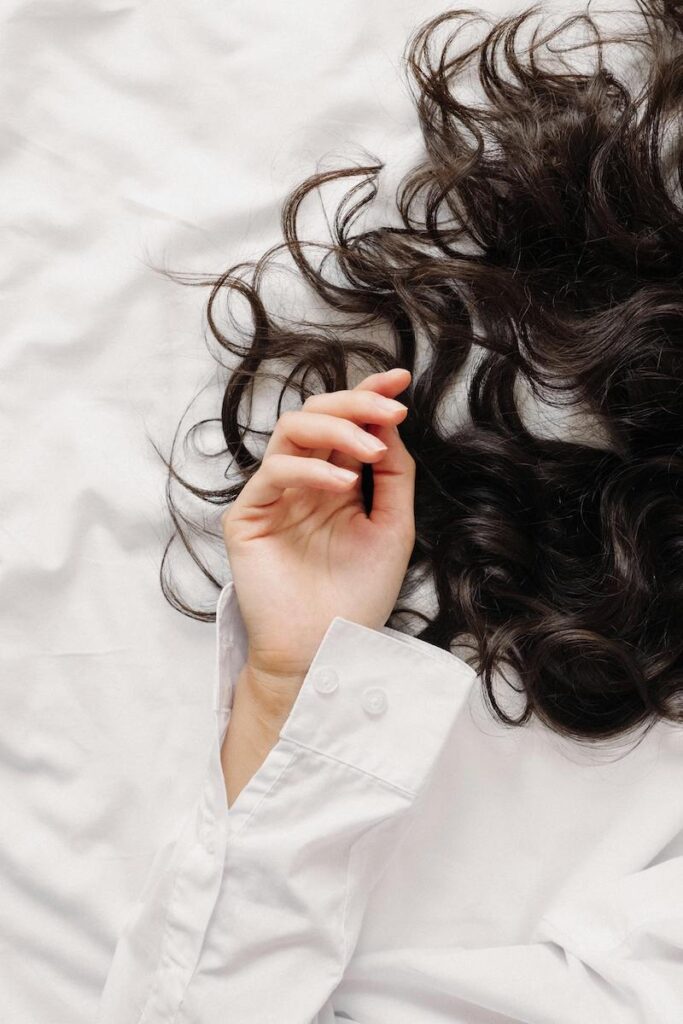What can I do?
September, back to school for some, holidays without the crowds for others, but one thing in common for many of us: hair that falls out more and is everywhere, whether it's running your hand through your hair, brushing, under the shower and towel, on your clothes or the floor... Help!
What happens to our hair in autumn? Is it normal to lose more hair in September? If so, what can be done to prevent excessive hair loss in autumn and stimulate rapid hair regrowth?
Clauderer explains what seasonal hair loss is and gives you advice on how to keep your hair looking beautiful all year round.
Seasonal hair loss: hormones, hormones!
Recent studies tend to show that hormone production follows an annual cycle, with peaks and troughs corresponding to the cycle of the seasons. This is particularly true of sex hormones (testosterone and oestradiol) and the "stress hormone" cortisol.
What's more, another hormone, melatonin, whose production is governed by the variations between light and night, is thought to play a key role. Melatonin is thought to be the switch that regulates hormone production and its intensity. As proof of this, variations corresponding to geographical zones (+ or - close to the sun) were observed in the study depending on whether the participants lived in the northern hemisphere or further south (ibid).
The health of our hair is linked to a combination of factors, closely correlated with the cyclical variations in sex hormones, for women of course, but also for men. Hair loss of the androgenetic alopecia type is directly linked to the susceptibility of hair follicles to the harmful influence of an enzyme, DHT, transformed by male hormones.
It's hardly surprising, then, that hair growth and loss follow a curve that reflects the circadian changes in these hormones.
The days are getting shorter, hair is falling out
In our latitudes, light gradually decreases from the end of August onwards. This reduced exposure to natural light has a number of consequences for our bodies:
- reduced production of melatonin (see above), resulting in fatigue, disturbed sleep, irritability, anxiety and reduced concentration, among other things
- weakened immune defences, susceptibility to infections
- fall in vitamin D levels or calciferol. This vitamin (in reality, 'vitamin' D is also a hormone) is associated with healthy hair growth.

As the summer wears on, the days get shorter, fatigue sets in and the hair suffers.


Synonymous with the end of fine weather, this visible change in the sky can be unpleasant and a source of additional stress. That's all it takes to make our hair look miserable!
On holiday, I forget everything, including my hair routine!
Unfortunately, putting your hair routine on 'pause' during the summer is not necessarily a good idea. Yes, if you slow down the pace of blow-drying and straightening, if you leave it to the sun to add golden highlights to your hair, or if you proudly wear your Afro hairstyle au naturel without a suffocating wig or tight braids and add-ons that encourage your hair to grow out leading to traction alopecia. But no if you go out without protection: hat, scarf, no again if you do without a prolonged rinse with clear water followed by a nourishing and moisturising treatment after swimming in the sea or pool. Your hair won't thank you when you get back. You'll be left with unmanageable, dull, brittle hair that's too dry, split ends and damaged lengths.

Fill up on vitamin D, but not without protection
Not to mention the resurgence of irritation after the sun's soothing effect on scalps sensitive to psoriasis or dermatitis. That's over too, especially if stress gets in the way.
You should also be careful about what you eat on holiday. You can indulge yourself, but it's better to focus on fresh produce: fruit and vegetables bursting with vitamins, fresh fish rich in omega-3s, etc. Too much refined sugar, fast food and alcohol are harmful to hair health.
In short, you're in hair distress from the very first days of the new school year.
S for September, s for stress
Factor aggravating hair loss, stress, whether occasional or chronic, has a serious impact on hair health.
One-off stress attacks hair growth as a whole, causing what is known as a telogenic effluvium. Under the effect of stress, the hair follicles simultaneously slow down their activity and all the hair at once enters a resting phase (telogen phase). Whereas usually only a small proportion (15 %) of hair enters the telogen phase, hair cycles are completely out of kilter. Hence the impression of losing your hair by the handful. The good news is that telogen effluvium is reversible once the sources of stress have been eliminated or brought under control.
In the event of chronic stress, under the effect of cortisol produced by the adrenal glands, the hair follicles receive 1 message extending their resting phase. Hair production slows down. Over time, the hair renews itself less, less well and becomes thinner and less dense.
Another consequence of chronic stress: hair greying prematurely because the melanocytes (responsible for hair pigmentation) are irreparably attacked.
Food for thought: While grey hair is irreversible, since the stem cells in the hair follicle are only dormant, it might be possible to 'wake them up' for renewed hair production. Unfortunately, this is only a hypothesis for the moment.
Solutions to reduce sudden seasonal hair loss
Anticipate Instead of finding yourself with hair falling out in fistfuls as soon as you get back from holiday, it's better to think ahead. You can :
- Start a course of special hair supplements (Racines Plus) as early as August. An effective dietary supplement for beautiful hair contains at least group B vitamins and trace elements such as zinc, iron and sulphur.
- Make an appointment with your favourite hairdresser to trim any split ends that are too damaged to be saved
- Check your vitamin D levels and take supplements if necessary.
Repair stay warm and enjoy cocooning treatments with leave-on time to maximise their effects
- Hair masks rich in jojoba, shea and castor to strengthen the hair fibre and stop hair loss, massages to soften the scalp and activate microcirculation - and it has an anti-stress effect!
- Purifying milks to restore balance to the cleansed scalp. Don't forget thata healthy scalp is the sine qua non condition for healthy hair.
- You can use an intensive anti-hair loss treatment with localised application of anti-hair loss serums such as N°6R.
- Damaged hair? swap your usual shampoo for an ultra-gentle cleansing cream or a moisturising emulsion to gently cleanse hair damaged during the summer.
Maintain Making good resolutions to protect your hair and face winter with peace of mind
- Set up a simple hair ritual that you can enjoy doing without any constraints.
- Protect your scalp to space out and soothe attacks of dermatitis or psoriasis - the right rhythm: Purifying lotion such as Lait Clauderer once a week, leave to work, then rinse and wash with the least aggressive shampoo possible.
- Rediscovering a healthy lifestyle can help you look after your microbiota, the key to balance. This means eating a varied diet with few processed foods.

It's possible to keep your hair looking good in autumn
Finally, if despite everything, your hair continues to fall out after a few weeks, this may be the sign of a deeper imbalance: make an appointment with the Clauderer Specialists, who will be able to carry out a hair diagnosis and provide you with the solution to effectively slow down hair loss and quickly restore your hair to a healthy, vigorous state. A great back-to-school programme, don't you think?

